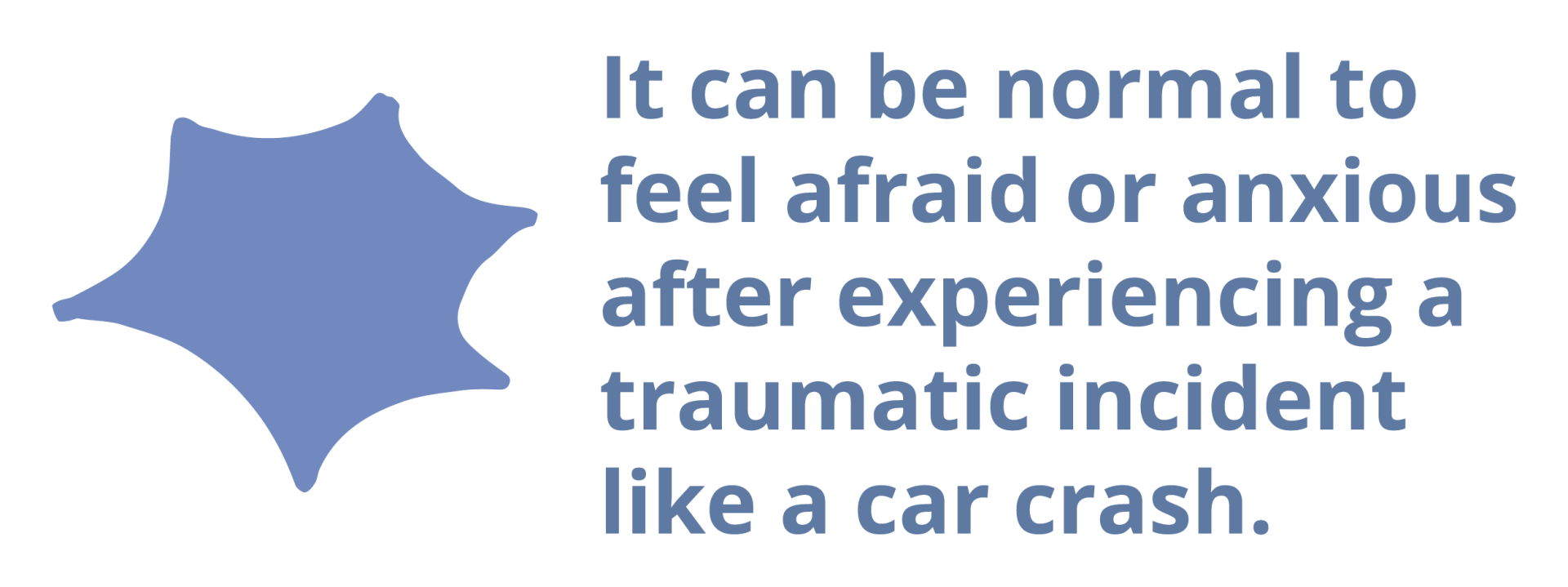What is driving anxiety?
A driving anxiety is an overwhelming fear of driving or fear of having a panic attack while driving, which can cause you to limit or avoid driving altogether. Driving anxiety can also cause you to become anxious and scared when you are a passenger in a motor vehicle.

What can I do to overcome a driving anxiety?
Talk about your experience
It is okay to admit you don’t feel safe or comfortable driving. Opening up to friends, family or colleagues you trust may help you to process and understand more about what you are experiencing.

Identify triggers
It can be helpful to understand what is causing your anxiety. There can be a range of reasons such as certain road conditions, driving in heavy traffic, driving behind trucks etc. The more awareness you have of your triggers, the more able you are to develop strategies to cope with them.
Practice relaxation
Learn some relaxation techniques and practice these regularly to reduce your stress response and calm your anxiety. You can do this using breathing or mindfulness exercises or by engaging in an activity that relaxes you. If you experience an increase in anxiety while you are driving, take a few deep breaths and relax any tension felt in your body. This will signal to your body that you are safe, and help you remain present and focused while driving.
Seek professional help
If driving anxiety continues to impact your daily functioning, organise a health check with your G.P. who can give helpful advice on how to proceed including referral options in your local area. This may include seeing a counsellor or psychologist, through various services. Speaking with a mental health professional can be a helpful way to process your experience and learn tools to manage or reduce your anxiety response.



